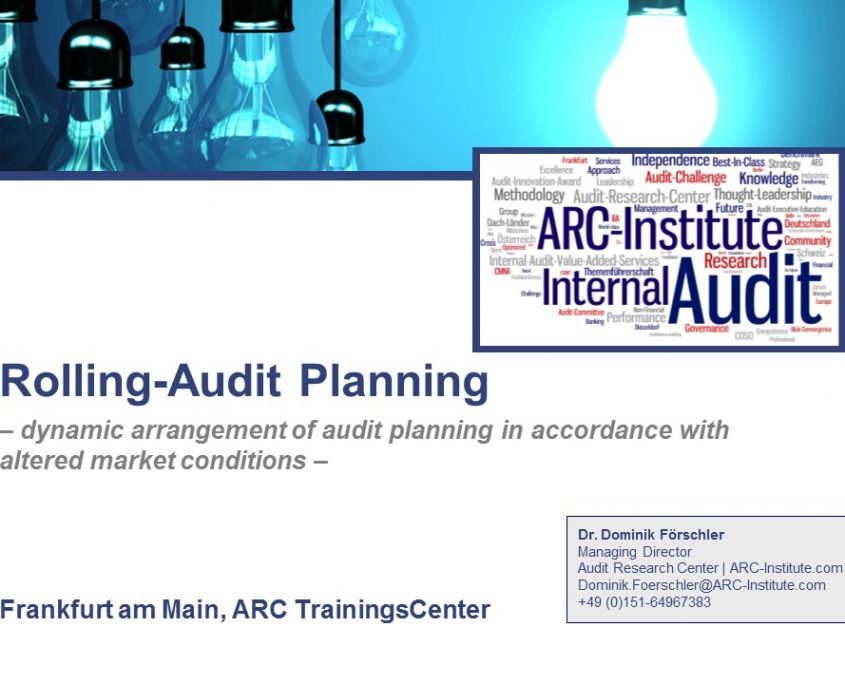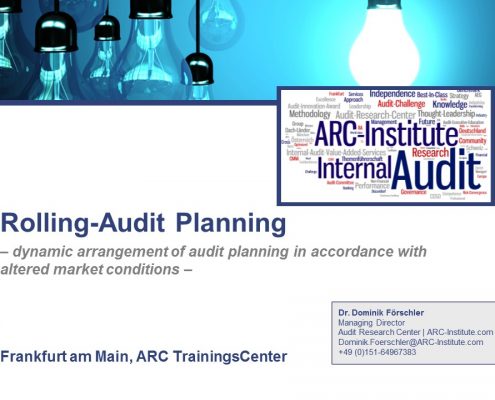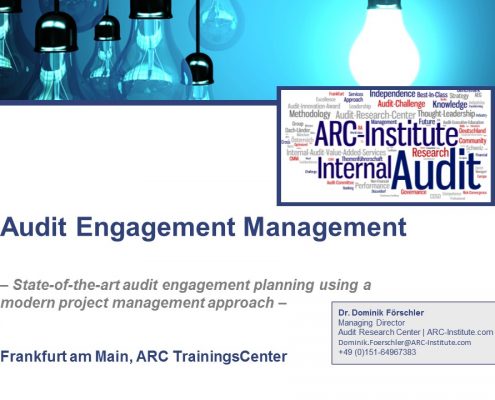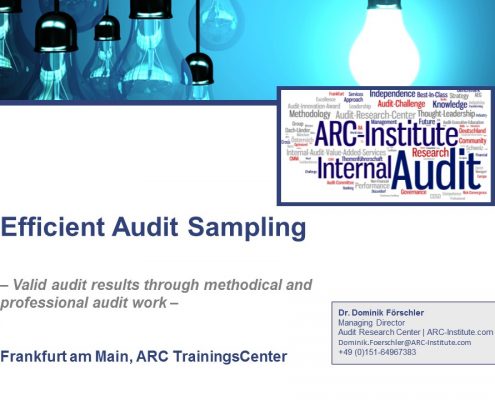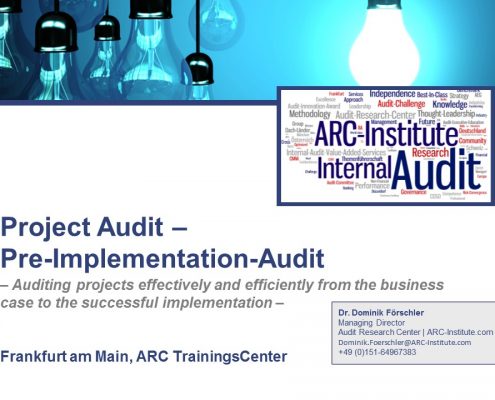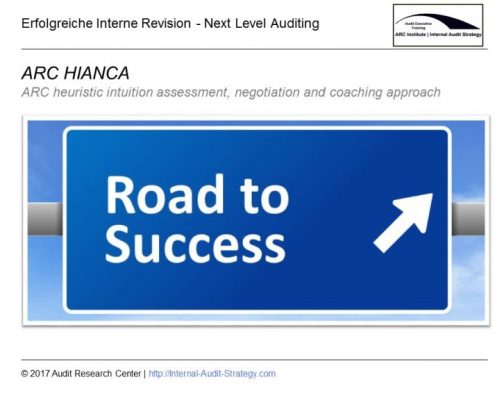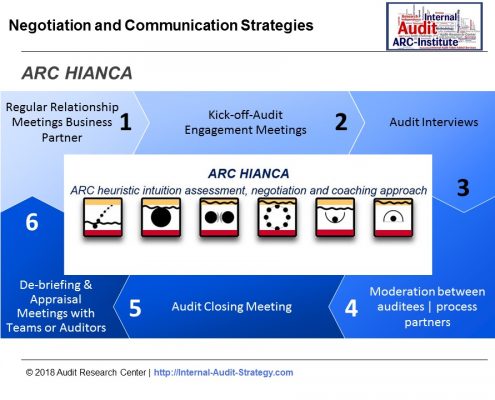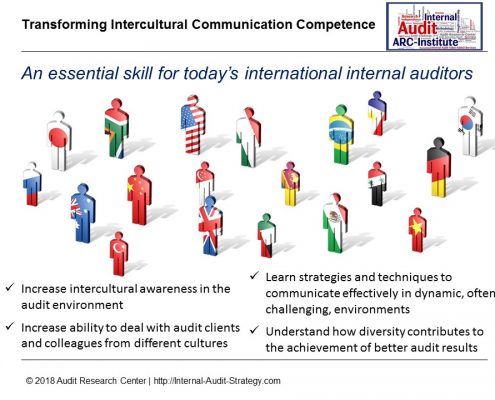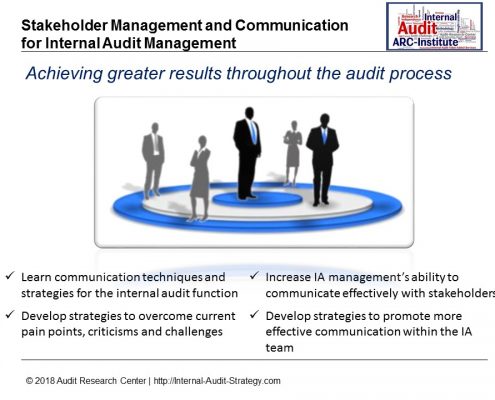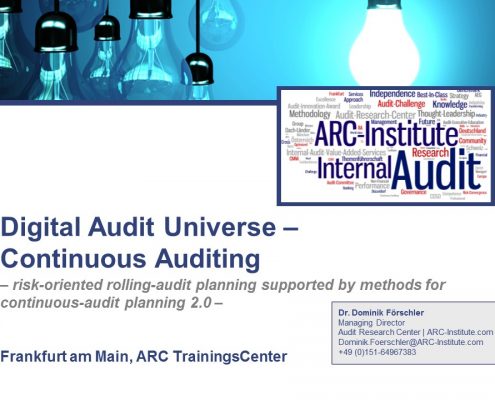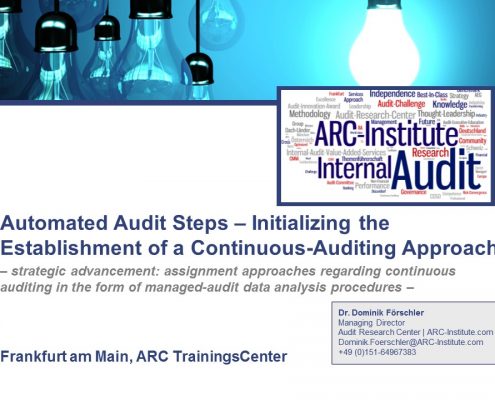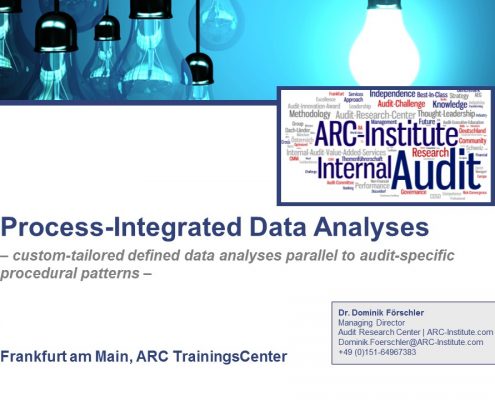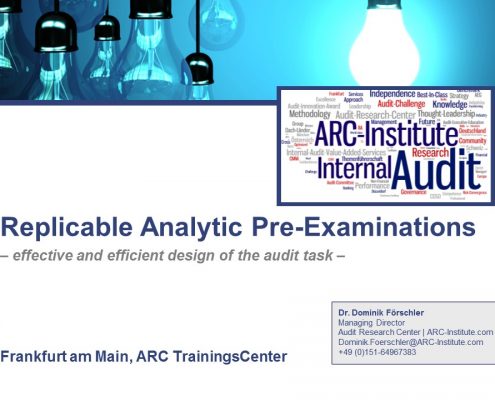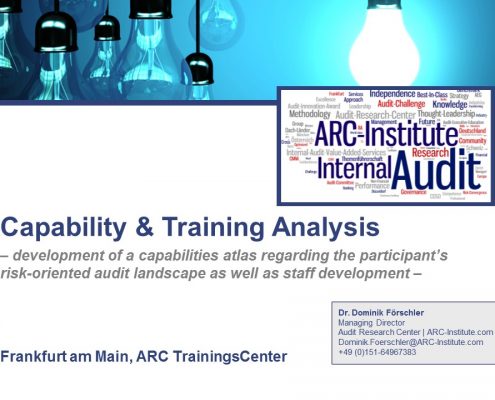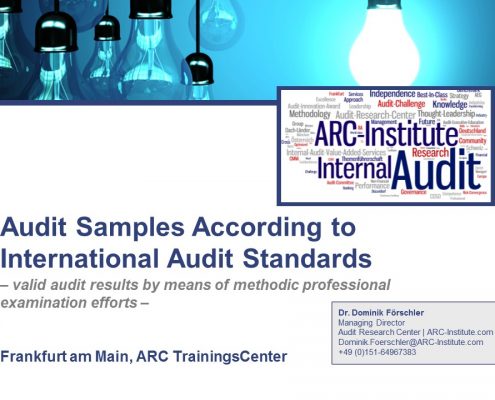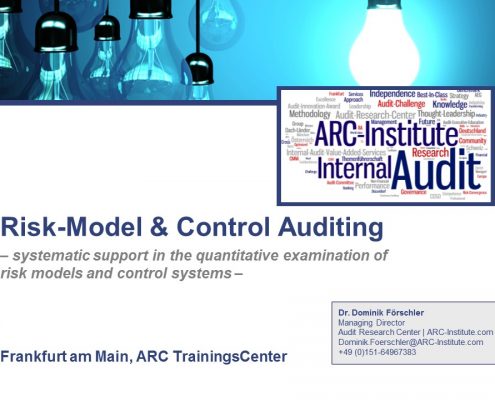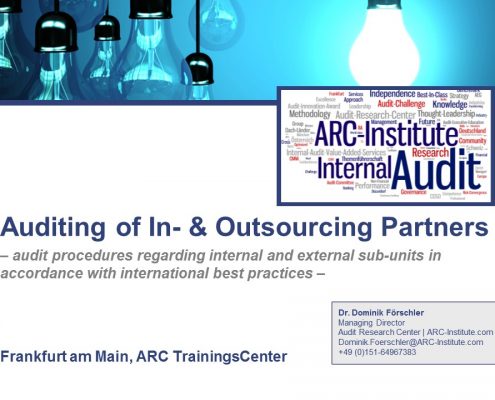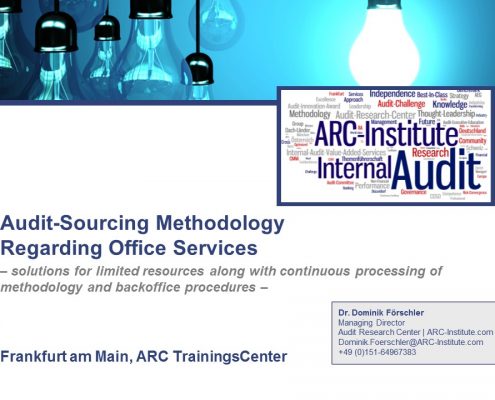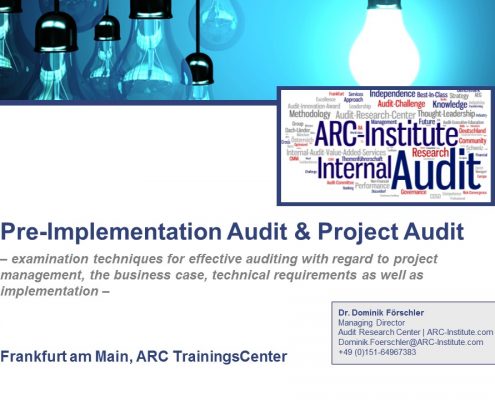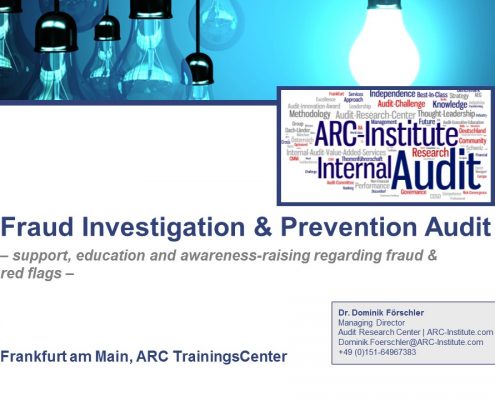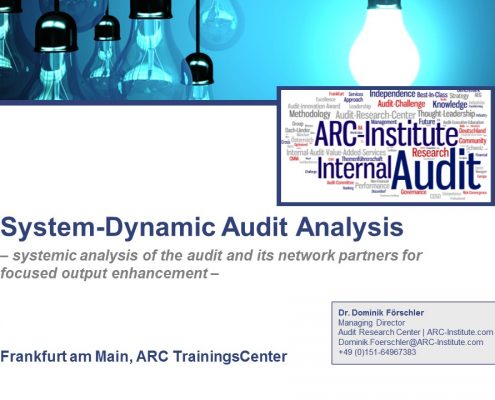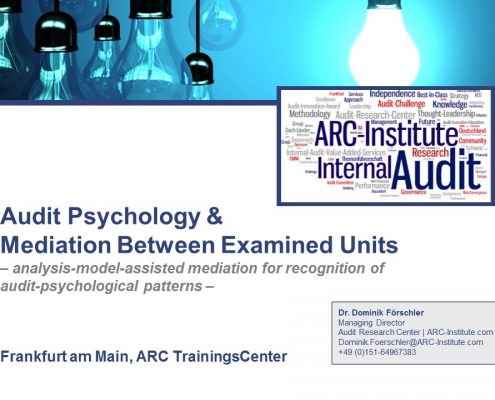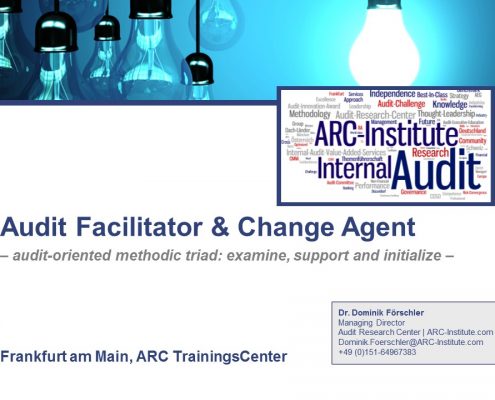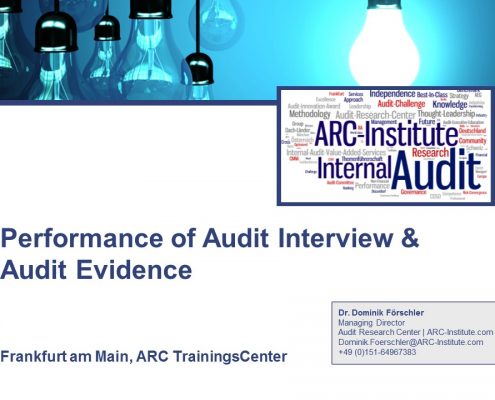Rolling-Audit Planning
– dynamic arrangement of audit planning in accordance with altered market conditions –
Objective:
Dynamic risk fluctuations, their global interconnective impact as well as shorter product lifecycles in an environment with significant influences on the corporate business model call for the implementation of an audit function that is up-to-date and operates in a foresighted manner.
In order to keep pace with these developments – from an auditing standpoint – it is necessary to switch from an audit-planning schedule that employs a static, annual perspective formulated one year in advance to a more timely rolling method.
At the same time, the rolling-audit planning method typically is supported on the one hand by quantitative data. On the other hand, assistance is provided by qualitative data in the form of a continuous audit-relationship-management approach. In this case, the methodology developed by ARC provides substantial support for thorough interconnectivity of the various audit-planning stages. These include the audit universe or audit landscape, multiple-year and one-year planning as well as the implementation of risk categorization within the operative audit planning and its actual performance.
The so called 8th EU Directive: DIRECTIVE 2006/43/EC OF THE EUROPEAN PARLIAMENT AND OF THE COUNCIL on statutory audits of annual accounts and consolidated accounts, (amending Council Directives 78/660/EEC and 83/349/EEC and repealing Council Directive 84/253/EEC) as well as local laws, e.g. the German Accounting Law Modernization Act (Bilanzrechtsmodernisierungsgesetz = BilMoG) as well as the country’s Corporate Sector Supervision and Transparency Act (Gesetz zur Kontrolle und Transparenz im Unternehmensbereich = KonTraG) places demands on companies – and consequently on their risk-oriented administrative departments as well. Among these requirements are a timely risk assessment regarding the internal monitoring system as a component of the internal-control, risk-management and governance system. ARC assists its clients in achieving this goal in sync with a statement made by Robert B. Hirth Jr., Chairman at Committee of Sponsoring Organizations of the Treadway Commission (COSO): “We work in a real-time world,
Topics:
- Dynamic risk-situation frameworks
- Formative options regarding dynamic risk-oriented audit planning
- Prerequisites and framework parameters with respect to rolling-audit planning
- Risk-assessment systems and their consequences for the audit practice
- Discussion and illustration of typical problems related to implementation
- Synergies within the framework of risk convergence with other administrative departments
- Development of an independent and consistent audit-universe structure
- Staff allocation options within the dynamic audit-planning assignment
- Integration and implementation of the audit procedures learned – with regard to course participants’ own company audit environment
Management Trainer
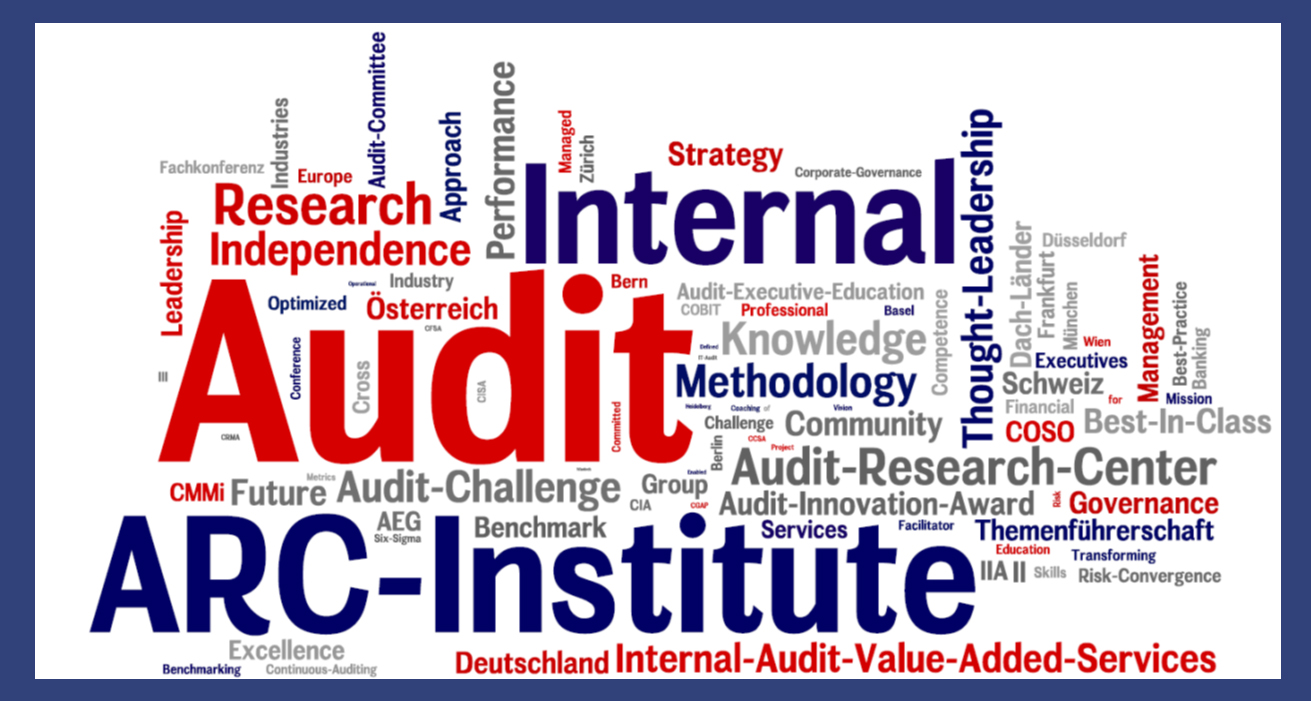
About the ARC Institute
With the Audit Research Center, the ARC Institute provides important impulses for the further development of the audit industry. The focus is on networking science and practice. The focus is on further and new development in cooperation with auditors, companies and associations in order to maintain practical relevance and to develop methods, tools and concepts that can be implemented. The results developed in dialogue with industry experts serve as a guideline and adaptation options in practice today, in order to increase the overall benefit of the company in the long term and sustainably with innovative auditing work.
In the spirit of thought leadership, the ARC Institute and the Audit Research Center stand for topic leadership and forward thinking in the area of internal auditing.
Currently, the ARC Institute supports not only leading supranational institutions in the context of research, consulting and personnel development projects, but also numerous listed companies in the three German-speaking countries of Germany, Austria and Switzerland.
Terms of participation and price
Each open training day is 890,- Euro plus VAT when booking the modules individually. Inhouse training conditions are based on individual pricing and travel expenses. After receipt of your registration you will receive a confirmation of registration with invoice. Please pay the registration fee directly after receiving the invoice. The registration fee does not include 19 % VAT. The price includes participation in the lectures of the booked event, lunch, coffee breaks and seminar documents.
At a glance
Target audience:
Employees and managerial staff from the internal audit function
Methodology:
Interactive presentation, discussion, group projects, practical exercises, case studies, retrospective summary
Training / Training / Consulting period:
Bookings are based on an audit-situation analysis as well as a personal preliminary meeting (workshops generally cover 2-3 days of instruction, audit performance/support determined by circumstances).
Contact:
Would you like more details about ARC’s Audit Training & Consulting Services, or do you wish to book an appointment with its team? Please address your e-mail inquiry to Info@ARC-Institute.com or phone us at +49-2159-6945-904
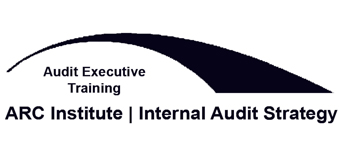
 ARC Institute Profile: Managing Director | Senior Equity Partner
ARC Institute Profile: Managing Director | Senior Equity Partner Tracie Marquardt
Tracie Marquardt ARC Institute Profile: Senior Engagement Manager
ARC Institute Profile: Senior Engagement Manager